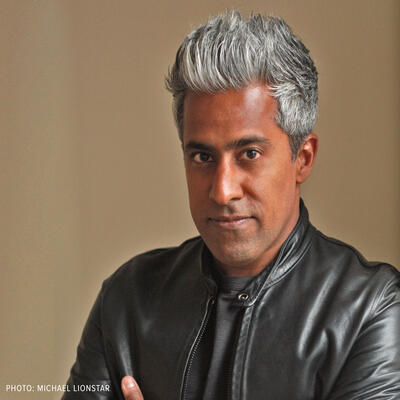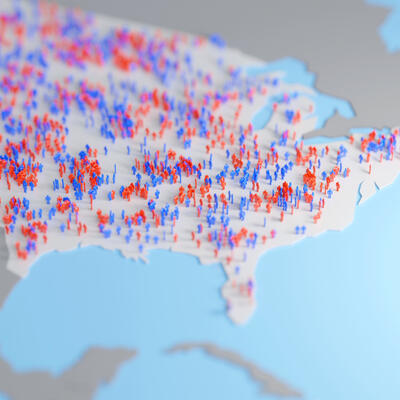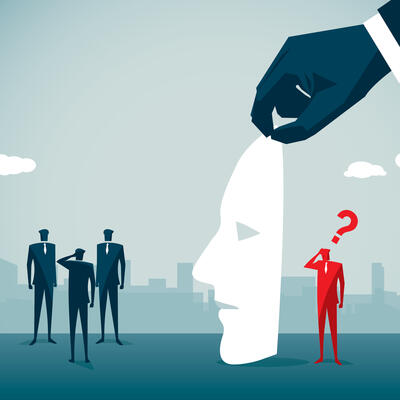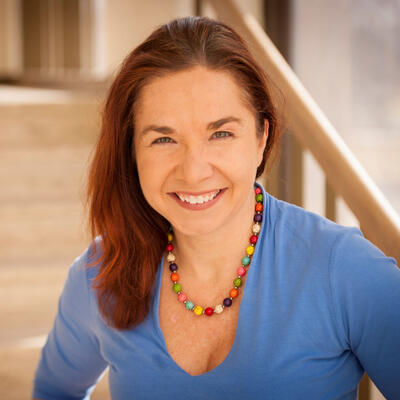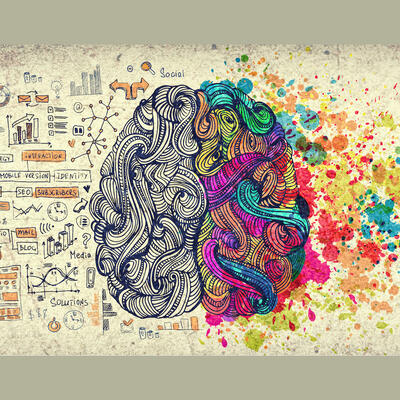
Talk Isn’t Cheap: The Power of Conversation
Guests
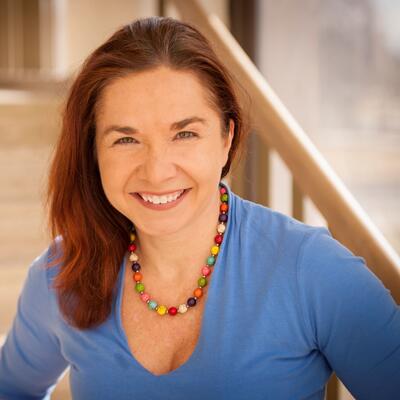
Katharine Hayhoe
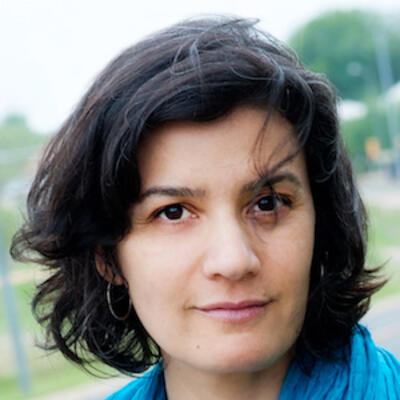
Meera Subramanian
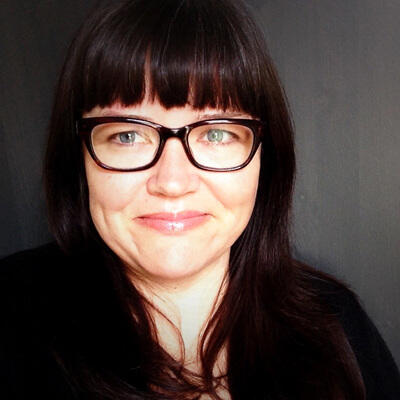
Faith Kearns
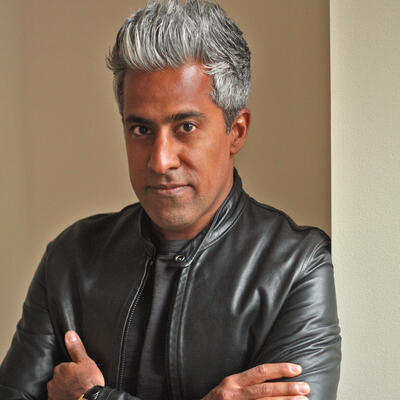
Anand Giridharadas
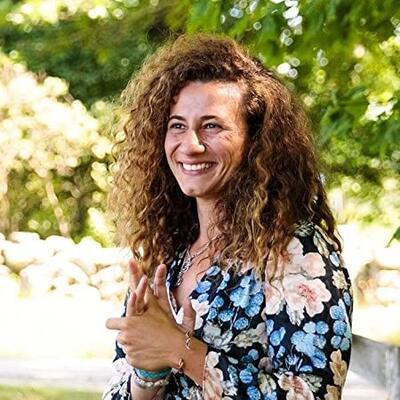
Chloe Maxmin
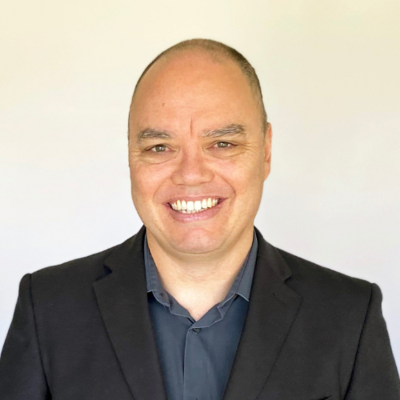
John Cook
Summary
As heat waves, storms, droughts and wildfires continue to worsen, talking can seem like a seriously insufficient climate solution. Are we just engaged in blah, blah, blah?
Katharine Hayhoe is chief scientist at The Nature Conservancy and a professor in the department of political science at Texas Tech. She’s a very firm believer in the power of conversations. She says what’s key is how we approach them.
“If we begin a conversation by disagreeing over something, it is very rare – it’s not impossible – but it is rare for it to end in a positive direction,” she says. We need to speak from the heart, not the head.
“If we begin a conversation by esteeming the other person rather than implicitly judging them, as so many conversations begin today, that conversation starts off with so much potential and can end in an incredibly surprising place.”
One half of conversation is talking, and the other half is listening. Journalist Meera Subramanian has honed her craft of listening, partly by spending months traveling the country, engaging with people about climate.
“There's just so many reasons why people might be resistant or engaged or dismissive [about climate]. And when I've been out reporting, sometimes I'm seeking out people that are on certain sides of the spectrum, but what I often find is that both sides are not listening to each other.”
Subramanian says we can all be better listeners: “And that sometimes means letting go of your own story about why a topic concerns you, and listening to what somebody is saying about why it might concern them.”
Truly listening needs to be part of every real, honest conversation. Only then can talk lead to action and, ultimately, change.
Anand Giridharadas, author of “The Persuaders,” says part of what can make climate a difficult subject is that for so long it’s been framed as a dark, dour problem.
“The climate movement needs to stop trying to hawk a dour sounding agenda and actually start with where are people, meet people where they are. Where are they on the emotional level, where are they on the psychological level, how can we speak to them?”
“The biggest problem with regard to climate on this topic of persuasion is the movement has been right on the facts, right on the warnings, right on what needs to be done. Right on the urgency, right on the shaming of politicians. Right, right, right, right, right. I think somewhere down the line, no one got the memo to make sure that we are building a movement that is more fun, more life-giving, more purpose giving, more educative, more welcoming to be part of,” Giridharadas says.
“Every single person in this country is impacted by the climate crisis,” says former Maine State Senator Chloe Maxmin, now co-executive director of Dirt Road Revival, “and people are gonna talk about it and think about it in different ways in different places…We just got to have open hearts and open minds.”
Episode Highlights
03:00 – Katharine Hayhoe on how to approach a conversation
06:35 – Meera Subramanian on how to be a better listener
10:30 – Faith Kearns on being a better science communicator
21:25 – Anand Giridharadas on the tactics of persuasion
34:00 – Anand Giridharadas on being a better persuader, especially when discussing climate disruption
38:30 – Chloe Maxmin on her “dirt road revival” campaigning tactics and the power of return conversations
46:00 – John Cook on the goals and tactics of misinformation
54:30 – How to respond to people relying on misinformation in conversation
Resources From This Episode (4)
Full Transcript
Note: Transcripts are generated using a combination of automated software and human transcribers and may contain errors. Please check the actual audio before quoting it.
Greg Dalton: I’ve been hosting this interview show for 17 years. And I’ve always been guided by the belief that empowering conversations are important first steps in avoiding the worst effects of climate change. But I’ll admit that…every now and again, I wonder why talking is so important.
Ariana Brocious: Yeah, like, is having conversations even enough?
[THEME]
Greg Dalton: I'm Greg Dalton.
Ariana Brocious: I'm Ariana Brocious.
Greg Dalton: And this is Climate One. As heat waves, storms, droughts and wildfires – continue to worsen, talking can seem seriously insufficient. What effect does it really have? Are we just engaged in blah, blah, blah? Just this week a guest wrote to me that talk is meaningless without action. That haunts me… and I hear it a lot - we need action, not talk!
Ariana Brocious: I get that and I agree. But real conversations are one of our best ways to share information and to express why this stuff matters to our lives right now. And it can inspire others to think differently about something. And all of those things are necessary first steps that hopefully lead to action and change.
Greg Dalton: Well, then the question becomes, how do we turn “hopefully” into something more real? How do we make those conversations really count?
Ariana Brocious: Right. Excellent questions. And that’s what we’re going to talk about on today’s show. We’ll explore the power of conversation by revisiting some of our own great conversations.
[music shift]
Ariana Brocious: One of our favorite climate communicators is Katharine Hayhoe. She’s an internationally renowned climate scientist who is also both Chief Scientist at The Nature Conservancy and a professor in the department of political science at Texas Tech.
Greg Dalton: Yeah, she is a powerhouse. The reason I like her so much is her ability to explain and connect at the same time. She is a scientist devoted to hard metrics who also champions the power of conversations and human connection.
Ariana Brocious: When you spoke to her in 2021, you talked about how one reason people avoid talking about climate is because they don't want to engage in conflict.
Greg Dalton: Yeah, she has all kinds of strategies for connecting with people who disagree with her. And even still, she gets hateful messages from total strangers all the time.
Katharine Hayhoe: Well, I get these messages every day and today was a bit on the high side so I’ve had at least 25 today. Most days I get one or two. And they come from dismissives. They come from people who, my personal definition which I probably mentioned to you before Greg, people who if an angel from God with brand new tablets of stone saying global warming is real appeared before them, it would not change their minds. So, why would I think I could? So, I don't start a conversation to argue. And if somebody argues with me, I respond once and if they continue to argue rather than using the resources I provided, I’m done. I step out. Because if we begin a conversation by disagreeing over something, it is very rare it’s not impossible, but it is rare for it to end in a positive direction. But here’s how we can flip it on its head. If we begin a conversation from the heart rather than the head. If we begin a conversation with something we agree on, rather than something we disagree on. If we begin a conversation by esteeming the other person rather than implicitly judging them like as so many conversations begin today, that conversation starts off with so much potential and can end in an incredibly surprising place.
[little bit of music]
Greg Dalton: Before the conversation even starts, Hayhoe thinks deeply about how to find common ground with the other person based on their values. She told me about the first time she spoke at a Rotary Club in Texas.
Katharine Hayhoe: I had carefully prepared a presentation that connected with who people were and where they live. So, I talked about Texas because we all lived in Texas. But I walked in and I see those giant banners, you know, up in the lobby that says, the four-way test. Is the truth, is it fair, is it beneficial to all concerned. And I look and I thought that’s climate change. Is it the truth? Yes. Is it fair? Absolutely not, that's why I’m a climate scientist. It’s the most profoundly unfair thing and exacerbates all the other injustices too. Will it benefit people to fix it? Yes. So, I skipped the buffet lunch. I went and perched on a seat in the corner of the hotel ballroom. I got my laptop and I rearranged my presentation into the four-way test. So, I got up there and I could see a few people giving some side eye to the woman who’d invited me. Like we know what you did there and you’re not gonna get on this committee again was what those looks were seeming to say to her. And there was a lot of sort of folded arms and leaning back, you know, I’m just gonna give her the, you know, I’m gonna give her this time because that’s what we do but I’m not gonna agree. But then I started in with the four-way test. And so, immediately those were their values and I was esteeming their values so much that I was basing everything I was saying around the test and applying their test to what I had to say.
And I went through the four-way test and I could see, I could see the arms unfolding I could see, you know, people leaning forward I could see people even starting to nod. And at the end, I will never forget a local banker, who I had met before a couple of times, came up to me with the most bemused look on his face. And he said, I never thought too much of that whole global warming thing, which is the very polite Texan way of saying I thought it was a load of crap. But it passed the four-way test. In other words, what can I do? That’s my value system. It tested it, it passed. I got to agree. That is the incredible power of starting out with our own values and our own priorities and our own sense of what is right. But recognizing everybody has morals. Everybody has values, everybody has reasons why they make decisions and if we take the time to get to know them, most times they are values we’re gonna esteem; they’re priorities that we can respect. And if we connect climate change to what they already care about, immediately we’re talking on their terms not ours.
[a little music post – to transition us OUT of Hayhoe]
Ariana Brocious: That’s such a powerful story. And I think it really gets at something else: The other half of talking is listening. Katharine Hayhoe really takes the time to listen, to get to know her audience first, before even starting to convey any new information.
Greg Dalton: Yeah it’s easy to fall into this trap where we think providing information is going to change people’s minds.
Ariana Brocious: An information dump.
Greg Dalton: Right! Someone who’s spent a lot of time practicing the craft of good listening is the journalist Meera Subramanian. And she told me identity politics has gotten in the way of reaching each other.
Meera Subramanian: People really do have strong identities to their place, and to their communities, to their people that they care about. And a lot of times I think that a lot of the boundaries and the friction that we're experiencing now are just where there seems like there's clashing, but there often is actually ways that we could be finding more overlap there.
Greg Dalton: So we're not listening to each other.
Meera Subramanian: We're not listening to each other at all. And we're not listening to each other. What each other is listening to either with the media siloization that's happened. Right?
Greg Dalton: Right, right. So how do you get people to listen to you? And how do you listen to them?
Meera Subramanian: So much of what has been explored around talking about climate change is that people aren't listening to why people either care about it deeply, are very much against it and want, don't want to believe that it's happening, or are in the place in between where, which is where many Americans are, where they're just busy doing other things, or they feel intimidated by the science. There's just so many reasons why people might be resistant or engaged or dismissive. And when I've been out reporting, sometimes I'm seeking out people that are on certain sides of the spectrum, but what I often find is that both sides are not listening to each other. I think it's really easy for people on the climate activist side to completely and utterly dismiss the people who are skeptical and vice versa. And so I think going in and trying to understand what is driving somebody, what are they thinking about in the middle of the night? Because everybody's kind of up in the middle of the night, I think, especially these days.
Greg Dalton: I am. That’s for sure.
Meera Subramanian: So what are those driving concerns? What are they worried about? And I think where the opportunity is, is that there's so many places where addressing climate change can address those midnight worries for everybody. And that sometimes means that you have to let go of, you know, going back to identity, letting go of your own story about why a topic concerns you. And listening to what somebody is saying about why it might concern them.
Greg Dalton: Yeah, there's sort of this immediate kind of rebuttal. We pounce on each other without really absorbing or reflecting. And there's often a lot of fear, I think, underneath.
Meera Subramanian: Right. And what happens with that? I mean, psychologists tell us, and we all know, we all get our defenses up when we feel attacked. It's just a human response. And so we have to hold ideas and facts accountable. There has to be accountability around what is actually happening on the scientific level, but just beating people over the head with that is not the way that that narrative changes.
[music]
Ariana Brocious: What I hear Meera Subramanian saying there is that if the science alone was convincing, we would have prevented the worst of human-caused climate change decades ago.
Greg Dalton: Exactly. Facts and evidence haven’t gotten the job. It’s not like this was a surprise – Scientists have been presenting business leaders and government officials with the basic facts for a long, long time.
Ariana Brocious: A long time!
Greg Dalton: President Lyndon Johnson was briefed on climate change in 1965. He made some really strong statements about the harms of burning fossil fuels.
Ariana Brocious: And this reminds me of another person who’s focused on communicating science: Faith Kearns. She wrote a whole book about it, actually. She believes one of the big pitfalls here is thinking the point of talking is to present information.
Greg Dalton: That’s right. She’s all about speaking from the heart. She told me about an awakening she had in 1996, when she went to the National Press Club to hear a group of UN climate scientists present their report.
Faith Kearns: The presentation was not particularly dynamic, it was incredibly… these are the facts as they are and now, we shall proceed to do something about it. And I think as a young person, I had learned about things like how we dealt with acid rain and the ozone hole. And so, I sort of knew that it was possible to develop these kinds of agreements, arrangements, diplomatic efforts that would address these issues. And I, at the time assumed climate change would be very similar and there is nothing you know the day I watched this report being released that would indicate otherwise. But the past 25 years of my career have certainly shown me otherwise.
Greg Dalton: Right. In fact, Jim Hansen says when he testified in 1988 the hot summer before Congress really when the New York Times published that front-page article. In many ways that's when the public discourse of climate began. He thought that the responsible parties would receive the facts and do the responsible thing. And we’ve taken a couple of decades to learn that human beings are not quite as rationally responsive as we all expected.
Faith Kearns: That has also changed for me how I think of communicating as a scientist. So, you know, when I was younger the way that we would talk about communicating science was often that you would learn how to speak really well, give a good presentation, come up with bullet-message points that you would deliver to journalists, hopefully at the New York Times. And you would hopefully be speaking from a position of tenure at Stanford or some other elite institution. And I think as we both know none of those things are quite as useful as we might have hoped, and instead what I found with myself is I've had to turn to other professions that have a longer history of working directly with people on very sort of emotional, contentious and traumatizing issues which is what many of these environmental related issues have become.
Greg Dalton: So much of climate communication is based on this deficit model of communication. Can you tell us what the deficit model is and is it still kind of the main primary model for the people operating on?
Faith Kearns: Yes. So, the deficit model is basically this idea that in order to take action essentially or to do something people just need more information. And this is not particular to the sciences. I've worked for a large environmental NGO where a lot of the focus was on the idea of awareness, right. Everybody's trying to figure out how do we move past this idea that just arming people with facts will lead to a better world, right, because we’ve just seen that that’s absolutely not true. But science communication in many ways evolved from faculty who were used to teaching, right. And so, you can't say that you don't think that teaching model is helpful when you're very deeply invested in it, right? And so, we’ve had this reckoning where people I think realize that even that teaching model doesn't work as well as people had hoped. And so, you know, I think this is a broadscale reckoning about how we work together. And I think what's more helpful for me rather than sort of sitting there as somebody who says I know what we need to do you know and now I just need to get everybody else to do it, which to me is a lot of focus of the behavior change psychology piece, it’s actually to say we’re all facing the sort of same dilemma and I know a few things and you know a few things. What are we going to do?
Greg Dalton: It sounds like you’re really talking about empathy with the audience, and you came to that place through some tough lessons. As a young scientist you spoke to a group about fire science in an academic way without acknowledging that you were talking to fire survivors in a way that was retraumatizing to them. Tell me about that.
Faith Kearns: Yeah. So, in about 2007 I was with some colleagues up in Ukiah in Northern California and we were participating in something called a fire safety demonstration where you know a couple times a year you might go out to a fairgrounds or something like that and sort of talk with people about how you can keep homes from burning down during wildfires by doing things like making sure your attic vents are covered with screens that embers can't get through and things like that. And so, what we didn't realize that day was that we were talking to a community that had just survived a wildfire and they were dealing directly with many of the issues that we were talking about in a fairly intellectually distanced way. For example, how to maybe stay and protect your home during a wildfire, right, which is clearly an incredibly emotional issue. And then, you know, just talking about what people can do to make sure they're prepared to evacuate I think brought up varying feelings for people, you know, some people were really grateful that they'd been able to do it and other people had guilt about things they left behind. There are just a lot of emotions in the room. And it was the first time that I let myself kind of really feel that as a scientist and not assume that it was something that I wasn't gonna contend with, right. And so, part of that was because a man came up to me afterward and he basically shared with me in not using these words and words that took me many years afterward to figure out what he was saying but he had said, your presentation retraumatized me and made me, you know, rethink how I had dealt with this fire and things like that. And I did spend a year or two really thinking a lot about the conversation and it really reset my entire career to kind of try to understand how I could work on an issue like fire that has such direct meaning in people's lives in a way that wasn't so intellectually distanced and what would it mean to be a scientist trying to do that. Because in many ways we are very much encouraged to stay neutral “objective” and not let feelings get involved in the things that we’re doing.
Greg Dalton: Yeah, sure. Yeah, rational, you stay up in your head. I’d like to talk about showing emotions in the process of communicating. You relate a story of Harvard historian Naomi Oreskes arguing that scientists should demonstrate alarm when they're using alarming language. Say more about that episode.
Faith Kearns: Dr. Oreskes just wrote this really, she's written a couple of things about this idea that you know scientists are saying similar to the fire story I was saying, right. They’re saying these very alarming things but in tones that aren't like there's smoke everybody evacuate you know it's very monotone kind of like the apocalypse is coming, but nobody worry. And I think the disconnect between those two things has been very, very difficult in the sciences. And I think we’re still figuring it out. And the thing that I try to get across a lot when I'm talking about this is that I'm really not talking about instigating feelings in other people. What I'm talking about is really just contending with the emotion that is already there. So, what does it mean to really say to people, this place that you live is going to be largely uninhabitable in 15 years? And to know how frightening that is to people while you're not outside of it, you know, you may not live on that strip of land but you see it, you experience it, whether it's from fire from sea level rise, from groundwater contamination, so just these deep experiences of kind of seeing what's coming, needing to communicate that needing to work with other people's emotions and your own all at the same time. And having no training to do it, right? So, I think that's where the old sort of dialogue about science communication has really fallen short is this that we are dealing with tremendous problems. And it isn't so much a matter of just let me move the chess pieces of who lives where and who does what and, you know, all of these things. We’re just all in it together.
Ariana Brocious: That was science communicator Faith Kearns.
Today’s show is all about the power of having conversations – and how those conversations can inspire action. Coming up, when we talk about climate, are we focused on the wrong things?
Anand Giridharadas: Where is the space for delight in the climate? Why aren’t we telling people all the cool sh** that they’re gonna have when we finally save the earth?
Ariana Brocious: That’s up next, when Climate One continues.
Greg Dalton: Please help us get people talking more about climate by sharing this episode with a friend. And we’d love to know what you think of the show. Please give us a rating or review. You can do it right now on your device – and it really helps people find the show. Thanks!
Greg Dalton: This is Climate One. Today we’re talking about… talking. Why talking climate is important, and how to do it more effectively.
Ariana Brocious: And when you say “effectively,” what do you mean? Like, effective at conveying information? Effective at persuading others to your point of view?
Greg Dalton: That’s an excellent question. I used to think my job was conveying information. Now I think the point of talking is more about forming connections and building mutual empathy.
I began to really feel this way after hearing David Brooks talk about his most recent book. It’s called “How to Know a Person: The Art of Seeing Others and Being Deeply Seen.” The way Brooks sees it, every exchange either builds or damages trust.
And that made me reflect on how *I* talk about climate. Sometimes I’m in transmission mode and not really understanding my conversation partner.
Ariana Brocious: Yeah, and maybe once a strong connection exists, there’s a space for both sides to consider the other’s viewpoint or argument more openly. A lot of skillful politicians and activists use those tactics in service of persuasion.
Greg Dalton: Right. The journalist and political analyst Anand Giridharadas has thought a lot about this. He wrote a book called The Persuaders: At the Front Lines of the Fight for Hearts, Minds, and Democracy. It explores how the tactics of persuasion can actually foster positive societal change.
Anand Giridharadas: This is not a book about how can we all get along better how can we heal. It is a book about how do we save the country from very real threats. Whether it's climate, internal fracturing, democratic decay, disgusting wealth inequality that has you know, made the American dream, something that only exist outside of the United States and so forth. But what I'm interested in is how do we grow the support for those ideas and not write people off preemptively as being un-addressable, uninterested, stuck in their ways never going to come around. How do we actually champion ideas like universal healthcare, or ideas like everyone voting and having those votes protected or ideas close to your heart around how do we defend the planet from the threat of it being uninhabitable? How do we do those things in a way that is through joyful, magnanimous, fiery movements. Movements that don't just feel dour, right. And we should talk in climate in particular, I think there's been this problem of movements that are better at being right than they are at being sticky, right. To me, I'm an outsider to the climate world, but I will say the biggest problem with regard to climate on this topic of persuasion is the movement has been right on the facts right on the warnings right on what needs to be done. Right on the urgency, right on the shaming of politicians. Right, right, right, right, right. I think somewhere down the line, no one got the memo to make sure that we are building a movement that is more fun, more life-giving, more purpose giving, more educative, more welcoming to be part of. So, that even if you don't care about 2° this or 2° that or you don't like the fact that they’re trying to get rid of your car whatever, you just want to be part of where that's going. You want to be part of that thing. And what I want with this book is for more of the righteous causes in this country and around the world to think about, are we reaching people, are we connecting to people emotionally and psychologically. Are we building that bigger we or are we just simply too complacent in the fact that our facts and our policies are correct?
Greg Dalton: Right. And you write about how some of those righteous movements can be exclusive and arrogant where some of the would you consider less righteous are actually more welcoming and inclusive. So, talk about that dichotomy.
Anand Giridharadas: It's so interesting, right? If you think about the far right in this country which is now the right. If you think about what it wants on paper, the kind of program it’s committed to it is as exclusionary as kind of any major movement we’ve seen in our lifetime. It is devoted to stripping women of their rights. Devoted to stripping people of color of their rights. Devoted to keeping more people out of the country. Devoted to making life harder for those on the margins of power. But if you separate the program the agenda what it wants on paper from its kind of affective approach to voters. Its political tactic the way it is read by a lot of people in a political arena. It reads as like come as you are, everyone in this is fun let's do this thing. And if you look at the left broadly speaking, by contrast, the program is the most inclusive program I would argue without exaggeration, I think the most inclusive program offered in the history of humankind, right. The left is talking about every expression of humanity being welcome, being celebrated, being legally protected, right. But then if you look at the way the left reads to a lot of people. And I'm not saying this is its fault all the time. There’s also a big machinery trying to spin it this way. But I think it is also an internal problem. The left reads to many people as being a club that’s hard to join. You got to know the right terms you got to say the right things, you have to kind of do your education on your own time and then come in, right. Again, some of this is ginned up, some of this is unfair perception. But I would say when I go out there and just talk to very lay voters. It is always surprising to me that they're somehow able to separate the program of the right from the fact that the right feels like kind of just a house party potluck where anybody can come in and come as you are. And the left which is committed to this in some ways radical agenda of human inclusion reads to people as a little bit of a close circle. And if we don't fix that, we are handing the country to those who wish it very ill.
Greg Dalton: I think that happens in climate a lot where if you're not vegan and solar you are kind of looked down upon. There’s this sort of, you know, purity test in climate world like that sort of judges people about their greenness. And people can sense that and it can be off-putting.
Anand Giridharadas: Totally. It’s such a good example because it gets to this confusion that I think a lot of the persuaders that I write about in the book were so smart about. Alicia Garza, one of the leaders of Black Lives Matter talks about this. She says, you know, I think, I’m paraphrasing here, she told me I think sometimes in our movements we feel like if there's a lot of non-radical people in our radical spaces there are something wrong with our radical spaces. Our radical space is failing. And she was kind of like what I'm here to say is if there's non-radical people in your radical space that's when your movement is succeeding, right.
Greg Dalton: You’re growing and recruiting.
Anand Giridharadas: Correct. And you’re now reaching people who don't share all the ideals, but they still want to be in there anyway. So, if you got meat eaters in your climate movement, that means your movement is now reaching people who don't share all your convictions who don't share everything but they still like something about what you're saying. You probably even alienated them sometimes with some of your vegan stuff, but they're still there. Why are they there? That’s interesting. Why are they showing up? You have created something in them that they still want to be there in spite of the barrier. Hallelujah! Congratulations, now you got a movement.
Greg Dalton: Welcome. Welcome. So, I was curious about how you can welcome someone while also still being a persuader.
Anand Giridharadas: What I think predominates on the left is you start with the wares that you’re trying to sell. I’m trying to sell you climate legislation. I'm trying to sell you democracy legislation. I'm trying to sell you advanced manufacturing legislation. I’m trying to sell you infrastructure legislation. And you, the voter, may be standing over there being like I'm really concerned about rising prices. I feel my neighborhood is unsafe. And I feel like the broad approach of the left is like, no, no, no, no, no, over blowing inflation, it’s fine, it’s just the war in Ukraine. Like you’re overblowing the inflation. This crime thing is not real the stats if you actually run the regression another way it's not actually more unsafe what you're feeling is not real, right. And people like, I don’t know, I saw two people got shot outside of my street kind of like that. And it’s like, no, no, no, no. If you actually compare it year on year adjusted for population growth, you’re totally safe.
Greg Dalton: We’ve got white papers that say, da, da, da.
Anand Giridharadas: We got so many white papers. And like, you know, inflation like and my family can't afford anything anymore. Yeah, but like it’s Putin that’s like Putin did that, you know. And then by the way we got these trucks delivering some wares. Would you like to reorganize the entire economy to fight climate change? Like, I’m really concerned about like inflation and crime? Climate is so important like that's actually the issue that matters right now. And, you know, what about infrastructure, I’d love to build some infrastructure like. Yeah, I can’t afford my house like, yeah, but we need infra, you know. And it’s not that these policies are not the right policies because as you know they actually do address a lot of these issues. And they do save you money in different ways and they do create jobs that will help you afford your house, right. But I just feel like very broadly speaking, the posture of the left is like, yeah, yeah, yeah, I know you feel that stuff is important. But let me explain to you why in fact, this other stuff is more important or is like is like primary like if you don't care about the stuff we care about them stuff. You’re worried about like it won't happen that's often the argument. Okay. Now, pivot to the right. The right starts with what's going on with you? What's happening with you, Greg, what are you anxious about? What are you afraid about? What have you noticed in your town recently that made you go, huh? That's new. What did your kids come home and say to you about what they learned in school that made you feel a little bit destabilized because you didn't learn that thing in school and that seems maybe a little weird what they learned or off-putting. What trainings have you been going to at work, Greg, that made you feel like I don't know I feel kind of awkward in those trainings or I feel attacked in those trainings. The right is starting with you.
Greg Dalton: Relationship.
Anand Giridharadas: And I think when we do not do that on the left, we get to a place where we're almost condescending to voters about what they should be caring about instead of saying who are you what are you afraid of and how can I you know how can I serve that? And so, something like climate is such a prime example because the difficulty of climate for most people who do not experience it as a day-to-day issue right now. Maybe they should but most voters who are not it is not polling at one, two or three.
Greg Dalton: Right. Right.
Anand Giridharadas: I think there is a basic problem of saying it should be polling one, two or three. Why are you not caring about this? Don’t you get on board to this? As opposed to like what do you love? You love your kids? You think about legacy? You love things being affordable? What do you love? And so, you know, instead of saying it's annoying that that's not a top three issue I think the way we often feel it's annoying the people are not getting it. How do we build consciousness around that issue? And so, just some thoughts. I think there's a way in which we talked about already the kind of dourness problem, right. I think there's a way in which fighting climate is often been framed this and it feels like homework or feels like eating your broccoli or spinach. It just feels it feels heavy it doesn't you know it's --
Greg Dalton: It’s complicated. It's depressing.
Anand Giridharadas: Correct. And I think it's worth saying, very clearly that there is no intrinsic reason why that needs to be the dominant effect of fighting climate change. I think it's actually preposterous that that's the dominant thing. Is there a dour element to it? Is there a you can’t have this anymore element? Sure. But as someone else I think Bill McKibben was saying on Twitter like fighting climate also means blimps. We’re gonna have blimps going all around. Helium blimps carrying you around. And he wrote a piece about like where is the delight where is the space for delight in the climate. Why aren’t we telling people all the cool sh** that they’re gonna have when we finally save the earth, right? Why aren’t we talking about the fact that we’re finally gonna make black communities whole in a bunch of structural and infrastructural ways after 400 years of plunder. Climate is the only thing big enough to rewire enough things to deal with that legacy. Why aren’t we talking about how awesome transit is going to be all around the country. Why aren’t we like hiring architects to invent incredible futuristic sustainable homes and build them at scale for the masses and making it easier to build homes instead of having to beg and borrow and steal from your local zoning authority to build something clean and green in your home? Like there's no reason, intrinsic reason that climate is like you can’t eat beef anymore and you're like, you know, and you're not gonna be able to like you can't, you can't, you can’t. It’s very weird that we have allowed that to become the dominant framing.
Greg Dalton: Yeah, stop, don't, bad, yeah. The framing where the electric cars are great. Anyone who's driven an electric car knows that it’s inherently better, faster, more enjoyable than an internal combustion car. You say that most people are failing as persuaders. What can people do to be better persuaders?
Anand Giridharadas: I think there’s a whole bunch of things you can do. I think you can learn to listen better and more strategically. Not for kumbaya but for actually achieving results in moving people. The climate movement needs to, you know, stop trying to hawk a dour sounding agenda and actually start with where our people meet people where they are. Where are they in the emotional level where are they psychological level how can we speak to them. And finally, I would say, whether this is folks listening worrying about their climate change denying uncle or worrying about this set of more systemic scale. I think it's important to recognize that a very large number of voters of citizens of our relatives and friends are morally confused. As Beyoncé describes herself, they’re contradicted, right. And, not everyone, there are absolutely militant committed fascists in this country, and you can kiss them goodbye. There is a lot of them. There’s a lot of diehard progressives you probably not gonna convince them that climate change is not real. But there's a lot of people between them who, they're not actually according to so much of the research that I've seen, they’re not centrists, they're not in the middle, they are morally contradicted. They agree that the planet is beautiful, but they don't like pressure on small business to save the planet. They agree that black people have it harder in this country, but they don't like the government playing favorites on race and you know having race conscious politics. They just feel contradicted. The persuaders I wrote about get that people are contradicted and orient themselves toward building up that element in people that might compete with the other thing that is right now their outward stance. Your outward stance is against immigration. Your outward stance is let’s do nothing on climate. But there's another part in you. It may be your Christianity and your idea of God's creation of the earth. There is a kind of B-side in people's hearts on virtually every issue. The B-side is small in some cases, it's almost near as influential as the A-side in other cases. But we all kind of have a B-side for the things we think, at least many of us, enough of us to drastically change the course of this country. And the biggest thing I think you could take away from these persuaders I got to spend time with over the last few years is to recognize that view of other people as complicated as complicated as you know yourself to be. And then engage, whether interpersonally in your family in politics. Engage in that work of helping them make it make sense, helping them make meaning and be there to walk with them in the direction that you wish to go.
Music: in
Ariana Brocious: That was Anand Giridharadas – his book is called The Persuaders: At the Front Lines of the Fight for Hearts, Minds, and Democracy. I love what he says there about recognizing “the view of other people as complicated as you know yourself to be.” We all contain multitudes, right? And starting from there is a better way to get into real conversation with others.
Greg Dalton: He also says most people are 60/40 on most issues. That is to say – while we have core beliefs, MUCH of what we think is dependent on context - who we’re talking with, what we read recently, how we’re feeling that day. Our views have fluidity. We don’t think and feel the same way all the time.
That explains why – if we want to change how people think in an enduring way – it’s so critical to engage with them over time. One-off conversations don’t define or change people. Relationships do – they help form a lasting way of seeing and being in the world.
Ariana Brocious: One person who has really put that into practice is Chloe Maxmin.
Maxmin was the youngest woman to ever serve in the Maine State Senate. She’s a Democrat – and after a two-year term in the state house, she was elected to the state senate in 2020 – unseating a two-term Republican incumbent.
Greg Dalton: Maxmin and her former campaign manager co-wrote a book called Dirt Road Revival. In it they describe their non-traditional approach to on-the-ground campaign strategy: They knocked on doors… and then went back to talk with those same people again. Most political organizers don’t return for follow ups, She also writes that Democrats often look down on rural people.
Chloe Maxmin: I think I've definitely always heard these narratives of, oh, these rural folks there voting against their own self-interest and what are they doing. And kind of these narratives that portray rural folks as not really understanding the issues and undermining their own best future. And those narratives have been very, very loud to me when I've been in urban spaces and even sometimes progressive spaces. I think it's a narrative that makes it really hard for us to engage with rural folks. And in my experience, knocking doors in my district I’ve knocked over 20,000 doors in my community. That narrative has had an actual impact on the ground where folks think Democrats don't want to hear from me. They don't want to take the time to talk to me. They just look down on me they think they're better than I am. And so, why would I vote for a Democrat?
Greg Dalton: Right. And having spent time in places like Montana and New Hampshire. I felt how people in those areas can feel the judgment of coastal elites. In your book Dirt Road Revival, you write “Things move at the speed of relationships in rural America, you don't jump straight into business and take care of things as quickly as possible." How were you able to use that idea in your campaigning?
Chloe Maxmin: To us it really felt quite simple, you know, when we were having these conversations with folks many of whom had never been contacted by a Democratic campaign or canvasser in their entire voting history. We, both myself, my campaign manager, all of our volunteers, we didn't show up and say, hey, this is Chloe this is who she is are you gonna vote for her yes or no? Do you know where your polling place is, yes or no? We didn't bring a traditional campaign script into the situation. What we did was we showed up and we said hey, you know, we’re from Chloe's campaign, or you know, I'm Chloe, just stopping by to see what's on your mind and how we can best represent what's going on in your life. So, it was really about building relationships with folks. I always think of it as just like making a friend 101. you don't show up, especially on someone's doorstep on their porch and their kitchen and say hey, you want to argue about abortion with me. You show up and you say hey, I’d love to get to know you, find out where our common ground is and let's see if we can build a relationship from there.
Greg Dalton: How do you handle conversations with conservatives when they express opinions that are antithetical to your own beliefs or even offensive?
Chloe Maxmin: That’s such a good question and it's something that took me a long time to find my own answer to. I think I found a lot of space in myself to have conversations with people where we can agree to disagree and we can have very civil kind, insightful conversations, even if we’re coming out on opposite sides. And I think that's a really lost art that's so important for maintaining some sense of empathy in our political environment when that’s becoming very, very difficult. And of course, sometimes people say things that that I don't agree with or that I find offensive. And I found my own way to kind of talk back to that, ask questions about it, understand where it's coming from so it's not something that completely ends the conversation. I’ve heard so many people say that they just kind of expect liberals and Democrats to yell at them and to school them on what's right and wrong when it comes to certain issues. There have definitely been so many times when people say things that are just too offensive for me to engage with. And at that point I say thank you so much for your time. I don't think we’re gonna, we don't have much to talk about here I’m gonna move on with my day. Thanks for talking. My approach is not to argue with anyone, not to try to persuade anyone but just trying to listen and understand what I'm hearing.
Greg Dalton: And people use different language. I'm curious how you chose your words and if you used words to reflect back to people that, I’m using your word or at least, which shows, kind of I understand you where I’m not using that other word that those other people use.
Chloe Maxmin: One of the biggest epiphanies that I had while doing this work is that so much of the time we completely align on values, but there are buzzwords or policies or just other things that are really divisive and prevent the conversation from happening. So, really being able to focus on that deeper level of values was almost always there was space for a conversation there, even if there wasn’t agreement. And I think that was so important, you know, it’s about translating this work into a rural conservative context and it makes sense. We don't use the same language wherever we go. People don't communicate the same way in every state or in every community. And so, it also doesn't make sense that we would have like a one-size-fits-all approach to campaigning or talking about the Green New Deal or Medicare for all or you know lowering student debt. Those conversations require a different dialect in rural communities like mine. But every single person in this country is impacted by the climate crisis. Everyone in Maine right now, every farmer is dragging because there is no rain. And that’s the way that we talk about it and think about it here and people are gonna talk about it and think about it in different ways in different places. I think it sounds so cheesy, but I feel like I’ve learned this lesson from listening to so many folks who are different from me and also being in so many democratic spaces that are pretty rigid about how we think about these issues. We just got to have open hearts and open minds.
Ariana Brocious: That was Chloe Maxmin. After serving in the Maine state senate, Maxmin decided not to run for reelection. She said she thought she could have more impact by working to get many people elected rather than just focusing on her own political career. Now she’s Co-Executive Director at Dirt Road Organizing.
Coming up… Climate activists aren’t the only ones pulling the levers of communication to get people to their side. Deniers and delayers also have their own playbook.
John Cook: If we want a public who are resilient against misinformation, we need to build up their ability to spot these types of fallacies.
Ariana Brocious: How to spot and counter misleading information – while remaining in conversation. That’s up next when Climate One continues.
This is Climate One. I’m Ariana Brocious.
Greg Dalton: And I’m Greg Dalton.
Ariana Brocious: So far today, we’ve talked about tools for how to listen better and build connections, and also ways that persuasion can lead to a stronger society. But there’s a challenge many of us run into when we start to talk about climate: What do we do when the person we’re chatting with is really dug in on a climate myth? Greg, how do you handle that?
Greg Dalton: Sometimes well; sometimes not well. I try not to attack the myth directly, and I do try to connect through something we have in common - technology, faith, money, food, something. I also turn to what I’ve learned from people like John Cook. He’s a senior research fellow at the Melbourne Centre for Behaviour Change. His research focuses on how we can use critical thinking to build resilience when we're faced with misinformation. To do that, we first have to learn how to spot the tactics used by deceivers – and understand their goals.
John Cook: Ultimately, its goal is to delay climate action and maintain the status quo. And you will find that no matter what the argument is, the conclusion is always the same, whether they're arguing climate change isn’t real therefore we shouldn’t act or climate change isn’t caused by humans therefore, we shouldn’t act or solutions won’t work, therefore we shouldn’t act. It’s always that end thing.
Greg Dalton: Right. Which harkens that confusion and doubt.
John Cook: There has been a gradual shift. Now they're arguing against climate solutions, arguing that climate policy might be harmful, arguing that renewables won’t work and just more subtle arguments than the usual climate change is a hoax type misinformation.
Greg Dalton: Right that's no longer tenable in a world where there's floods and fires that are rampant.
John Cook: I think what's most potent right now is culture war type misinformation. Arguments that other people who care about climate change, who are trying to get climate action, painting them as different to us and they’re trying to take away our lifestyle or impinge on our freedom. And generally, just trying to make the climate issue more tribal. The more tribal and polarized it becomes the harder it is to get progress.
Greg Dalton: Some of the techniques employed by misinformation you cite are magnified minority, cherry picking, false dichotomy. How are those employed and give some examples of each one if you could.
John Cook: So, attacking the scientific consensus on climate change has been a common strategy over the last few decades. And one way to do that is the use of magnified minorities. In other words, take a small group and make them look much bigger than they actually are and much more significant than they really are. And the most popular version of this technique is the global warming petition project. This is a website that features 31,000 science graduates in the US who signed a statement saying that humans are disrupting climate. And the point of this website is to say, hey look, 31,000 people dissent against the consensus that proves that there isn't a scientific consensus. But when you look at the total number of science graduates in the US it's millions and millions and 31,000 while seeming like a big number is actually a tiny fraction of a percent. It’s magnifying a minority to make them look bigger than they really are.
Greg Dalton: So, policy is harmful. What's that attack?
John Cook: Usually arguing that climate policy is harmful takes a form of arguing those either going to ruin the economy or raise prices to people. Typically what this does is cherry picks or oversimplifies the policy. For example, this is a very Australian centric one but it’s the one that immediately comes to mind. We brought in a carbon price in order to send a signal to the market to transition from fossil fuels to renewables. And this carbon price generated revenue for the government but all that money was then given back and it was mainly given back to lower income families. But what the misinformation targeting the policy did was say this is putting a price on carbon that’s gonna raise prices for families while ignoring that money was going back to families. So, usually attacks on climate policy will focus on one part of it, but ignore the entire policy and the aspects of it that make it work better.
Greg Dalton: And then false dichotomy. What's an example of that?
John Cook: False dichotomy is when you're given two choices and you have to choose one of them. When both might be true or maybe there’s a third choice. And the most common example of this in climate change and this is a little bit technical and complicated but it's looking at the ice core record. When we look at ice cores going back hundreds of thousands of years, in Antarctic ice cores we see that when temperature goes up, CO2 goes up afterwards by several hundred years, roughly. And what that tells us is: temperature went up before the CO2 and climate deniers look at this and say well, either temperature drives CO2 or CO2 drives temperature. You have to choose one or the other. But that's actually a false dichotomy because it’s not a choice between one or the other. Both are actually true. Temperature does drive CO2 when it gets warmer, the ocean gives up CO2 in the atmosphere. And then when you have more CO2 in the atmosphere that causes warming because it's a greenhouse gas. Put those two together and you get a reinforcing feedback.
Greg Dalton: John, you’ve also written about how people often substitute judgment about complex topics such as climate science with more simple judgments.How is that reliance on shortcuts fuel climate misinformation?
John Cook: Yeah, it's important to recognize that all of us are hardwired to make decisions based on snap mental shortcuts. And generally, it serves us well. It's how we’re able to escape a saber tooth tiger jumping out of the bushes or just immediate threats. The problem is in this modern world sometimes those mental shortcuts can lead us astray and it can also make us vulnerable to bad arguments or misinformation. And it's an unfortunate reality that the solution to this problem is critical thinking. We need to be able to get better at spotting misinformation and spotting attempts to mislead us. What are those different fallacies? Is this argument a false dichotomy or does it use magnified minority or cherry picking or other misleading techniques? If we want a public who are resilient against misinformation, we need to build up their ability to spot these types of fallacies.
Greg Dalton: Right. And I was watching some videos online of you kind of dissecting the premise and does the conclusion logically follow the premise. And it all seemed very reasonable and I thought yeah, but this is like bringing a knife to a gunfight. So, I'm just curious about your sort of very reasoned approach logic-based in an information age where things are viral and fake and spreading so quickly, regardless of their veracity.
John Cook: Yeah, it's really hard. I’ve struggled with those thoughts for many years. When we develop this critical thinking approach where you deconstruct arguments into premises and conclusion. I did that work with two critical thinking philosophers. They introduced me to the idea of parallel argumentation. You can explain logical flaws by not yet have to going to the whole premise premise conclusion logical like is it logically valid all that kind of analysis. You can just take a flawed argument and transplant that logic into a parallel situation. Usually the most absurd and extreme situation you can think of and then use the same logic. And that makes it very clear and engaging and concrete when you try to explain the flawed logic to people. And when they introduced this technique to me, I realized that this was what late-night comedians use every night. They'll say this person said this statement and well that's just like being in this situation and then using the same logic. Everyone laughs. They can immediately see that it’s wrong and they’re entertained. But most importantly, the comedian has actually introduced a bit of critical thinking because it’s shown a logical fallacy in a very concrete engaging way.
Greg Dalton: So, let's start practice this. If I say the climate’s changed before it’s changing now, it’s always been changing. Yeah, climate changes that’s what it does. How would you respond?
John Cook: That argument is the same logic as saying well people died of natural causes before cigarettes were invented. Therefore, cigarettes can’t cause harmful effects, or people died of cancer long before cigarettes were invented. Therefore, smoking doesn't cause cancer. It's the same logic. And it commits single cause fallacy. In other words, saying that whatever caused something in the past must also be causing it now when you can have multiple causes.
Greg Dalton: Let's try another one. If I say that models are unreliable. All climate models. They’re not accurate.
John Cook: So, actually we’re doing an experiment on that now. And so, our approach is being to say models are a simplification of reality but it didn’t capture all of reality. And we use models to get astronauts to the moon, this simplified versions of reality. Newton's laws of motion and Newton's laws of gravity are simplifications. Models don't need to be perfect in order to give us useful results. And climate models, they’re not perfect. They don’t capture absolutely everything but they capture enough to tell us that humans are causing climate change and that climate change has serious impacts.
Greg Dalton: John Cook is based at the University of Melbourne – we’ve got a link to his work in our show notes at Climate One dot org.
I find it so helpful to hear Cook break down specific kinds of misinformation tactics and how to respond to them.
Ariana Brocious: Agreed. And there’s another resource for having conversations about climate that I want to mention – it’s from a marketing company Potential Energy, focused on helping persuade and convince people to act on climate. They put out a guide called “Talk Like a Human” – which suggests words we use that can really connect with people. And it gets very specific about why language matters and how we might shift the words we use in order to get our ideas across more effectively.
For example, the guide points out that the word “green” is actually pretty loaded – it’s political and really broad. It’s more effective to talk about “safe and clean energy… conservation and preservation.” These are things everyone has experienced and can get behind.
Greg Dalton: Yeah it also suggests focusing on the local, human impacts. So instead of talking about the planet – which is a term used more by people on the Left – talk about your state, your town, your kids. Make it real and personal.
Ariana Brocious: And there’s one more piece of advice from the guide I really want to underline: there’s no need to exaggerate. The truth of the situation is scary enough.
Greg Dalton: This hour on Climate One, we’ve been talking about the power of conversation. How to talk with others more effectively, and how it’s a necessary first step that can lead to real change. We’d like to end today’s episode with one more story from Katharine Hayhoe that really stuck with us.
Ariana Brocious: It’s a story that shows just how much individual conversations can have a far-ranging ripple effect.
Katharine Hayhoe: In my book I talk about a man called Glenn who watched my TED talk when it came out in December 2018. And then in May the following year so like barely 6 months later, I was speaking near where he lived. And he took the train to see me speak and he said, I really want to come meet you because I’ve been worried about climate change for a long time. But after I heard your TED talk in December, I decided I was gonna talk about climate change in my town. So, I started to have conversations with everyone I knew about climate change and why it matters to us and what our town could do about it and I've kept a record of those conversations. Would you like to see it? So, I said sure, this was a new one. So, he reached in his leather satchel and he pulled out a sheaf of papers. And I was expecting maybe 70 or 80 names. Well, Glenn had tracked who everybody else I talked to too because he got them to do it too. He now has over 12,000 names in his list and after only five months he had about 10,000 names. And within a year of starting that have a conversation about climate change campaign his city council had voted to declare a climate emergency and which is what they do in the UK, it was in the UK and then they had voted to put 20 million pounds which is a considerable amount for relatively small town towards a climate action plan. And it all began with one man deciding to have conversations using his voice. I mean if he could do that imagine what the rest of us could do.
Ariana Brocious: Talking about climate can be hard — and it’s critical to address the transitions we need to make in all parts of society. Please help us get people talking more about climate by giving us a rating or review. You can do it right now on your device. You can also help by sending a link to this episode to a friend.
Greg Dalton: Brad Marshland is our senior producer; Our managing director is Jenny Park. Ariana Brocious is co-host, editor and producer. Austin Colón is producer and editor. Megan Biscieglia is our production manager. Wency Shaida is our development manager, Ben Testani is our communications manager. Jenny Lawton is Consulting Producer. Our theme music was composed by George Young. Gloria Duffy and Philip Yun are co-CEOs of The Commonwealth Club World Affairs, the nonprofit and nonpartisan forum where our program originates. I’m Greg Dalton.

